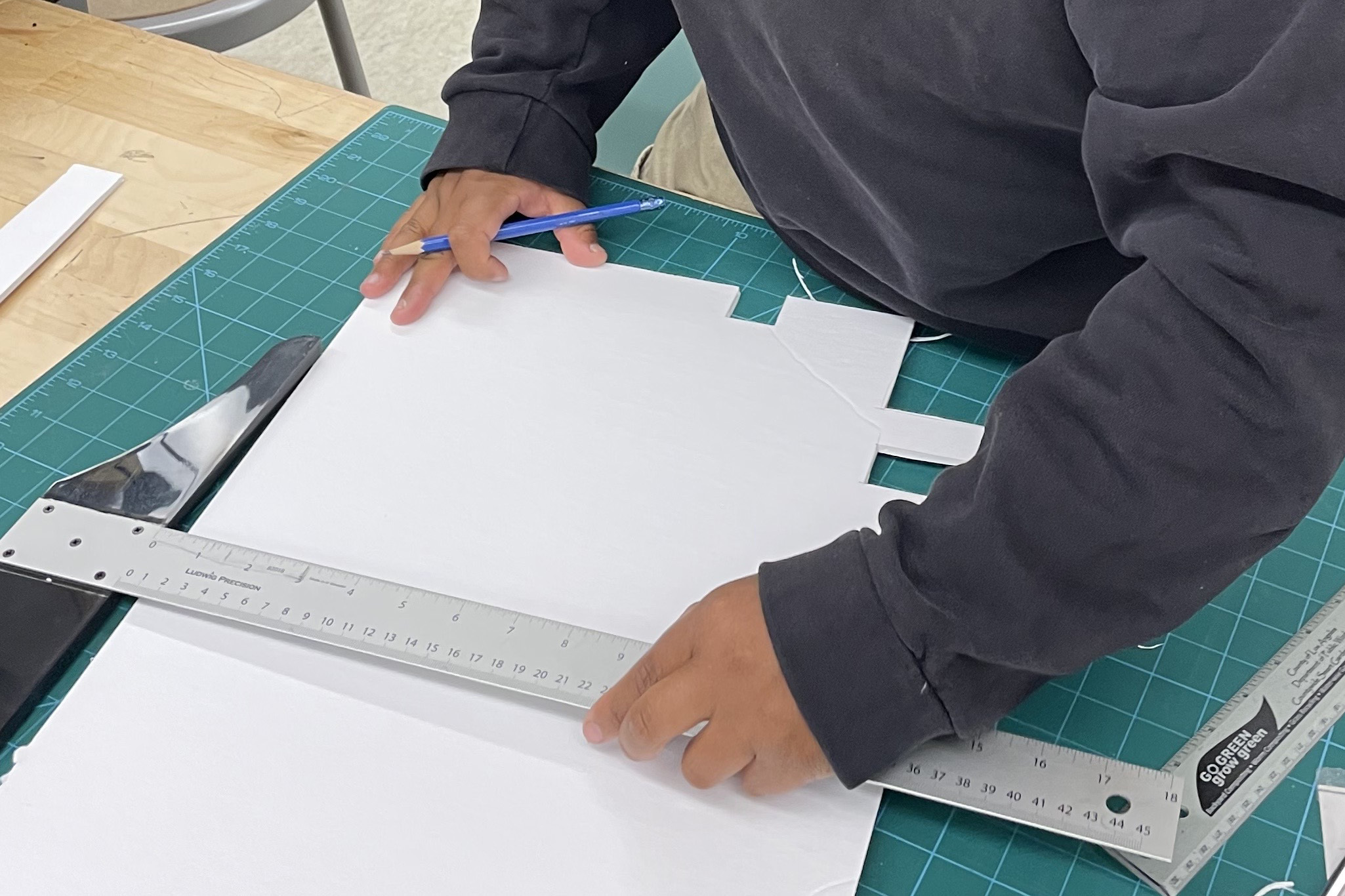Problem-based learning (PBL) is an interdisciplinary method of learning that leverages real-world problems.
PBL is designed to enable students to read, write and research community-based problems. Students use the engineering design process to propose a solution, and then present it to a real world audience.

Each PBL unit is grounded in the following framework:
1. Identity affirmation builds trust
A student’s identity and the context in which it develops is exactly what enables them to be knowledgable and capable problem-solvers today and that their teachers’ jobs are to honor, recognize, and build upon this, guiding students through this problem-solving opportunity. Allowing students to come to class exactly as they authentically are is critical to this process.
3. Community-based challenge launches discussion
Leveraging a challenge students can observe in their community and/or broader world creates an immediate connection and stimulates discussion. Discussion is critical to learning-in-action. Creating a more just and equitable world means giving students the opportunity to propose a solution to a challenge impacting their local community. Building in opportunities with local businesses and organizations gives students a tangible, yet guided context, to make an impact on a challenge students see in their own backyards.
2. Interdisciplinary problem-solving
Industry professionals use a range of skills to design solutions to solve problems in their contexts. This is why we make it a priority to immerse students in a problem-solving process that enables them to build academic skills as well as their communicative, collaborative, creativity and critical thinking skills to design a solution for their client.
Using a standards-based unit, all students are positioned as capable today and their contributions are framed as a value-add. This early problem-solving experience builds students’ confidence and courage to be the changemakers-of-the-future to build an equitable and just society.

